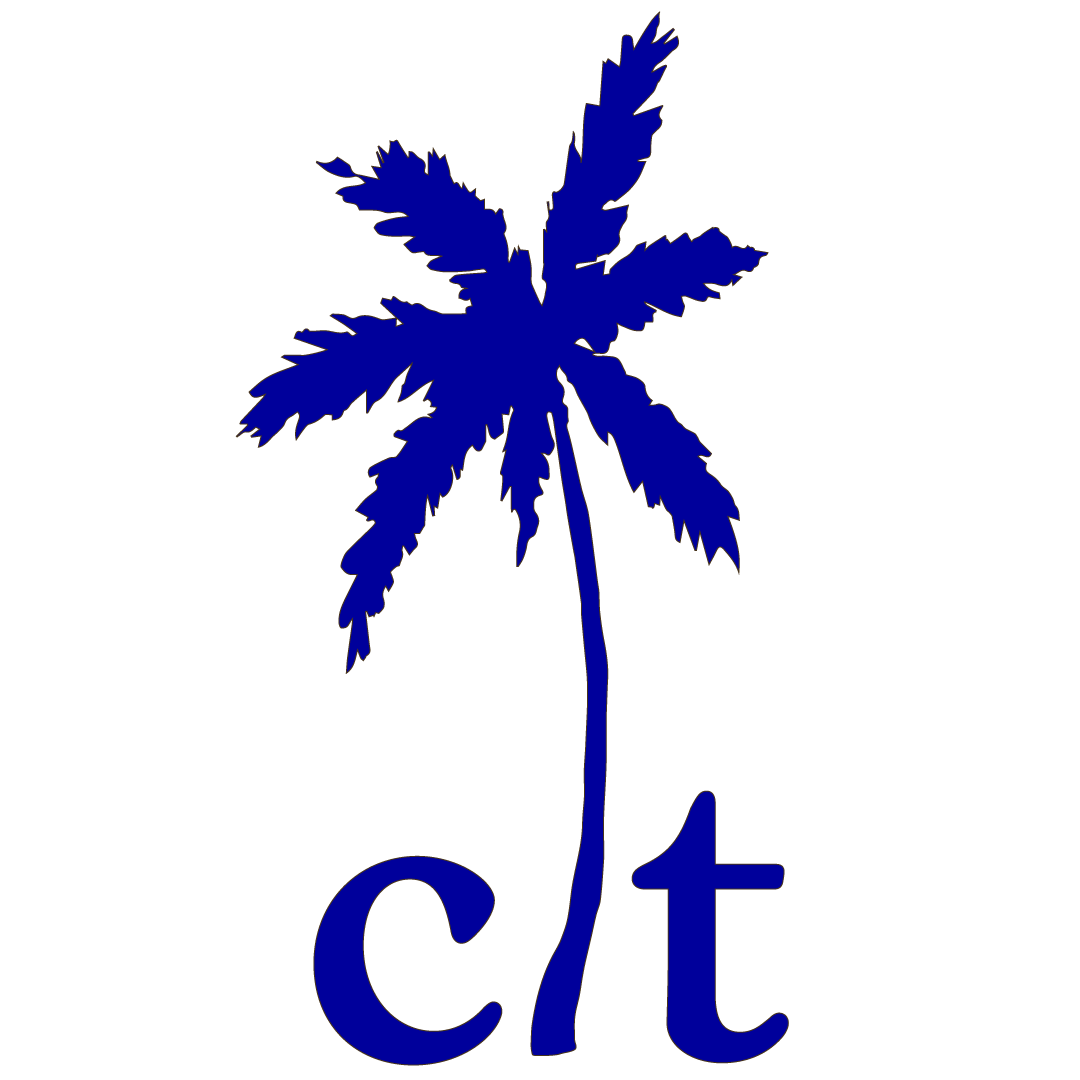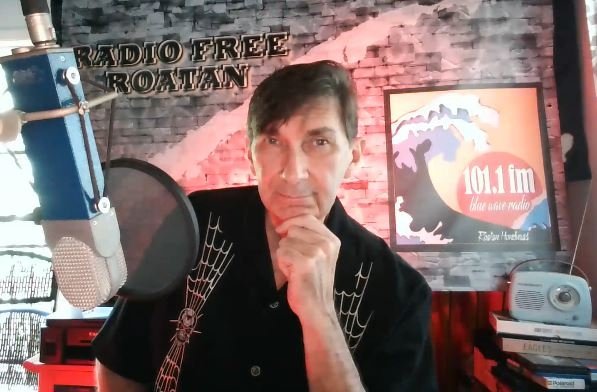Interview with Keith Miller aka Madison from Blue Wave Radio 101.1 …Marketing consultant and development coordinator for Hacienda Caribe Tesoro...
Can you tell us about your journey in the radio industry, from your early career to your current position at Blue Wave Radio Roatan?
I was 18 years old, a pretty good guitarist and loved music but didn't have the singing voice for pop music. But I'd been performing all through high school and the radio was constantly on.
I had an academic scholarship to a great Jesuit Catholic College and in my freshman year in college, as I was walking through the student center at Springhill College, a guy named Ray Barber, who ran the radio station on campus, was looking for anyone with a pulse. I had a pulse and a deep-voice, and I got roped into doing a radio show. It was all volunteer. I remember doing a special on Fleetwood Mac from their early days. To give this perspective, this was the second time I'd ever been on the radio.
The radio station's engineer, a long-haired guy named Tim Camp came in to check some equipment. He and I got into a conversation about radio as a career. I said I thought it would be fun. And he told me that his brother was a general manager of a radio station in Fairhope, Alabama. And they were looking for a weekend host and that I should go by on Monday and read for the job. I did. And I've been a professional radio person ever since... December 26th, 1976, my little sister's birthday.
How did you become interested in radio broadcasting and marketing, and what inspired you to pursue a career in this field?
I had a great dad. He'd grown up during the depression. He came from Mobile, Alabama. My mother had picked cotton as a kid working in a mill town in North Georgia call Chickamauga. Both loved music. Both always had music on in the house or car. My dad had a record collection. I listened to all of it. From Elvis to Hank, from "Shine on Harvest Moon" to "Mellow Yellow". From Sinatra to Nat. My mother woke me and my brother up to see the Beatles on the Ed Sullivan live. Can you imagine someone doing that today?
So, I always had a music bug. Dad was smart. He let me work the radio thing and was always there saying "Have a fallback plan in case this doesn't turn into a good paying job." And I can tell you that small market radio doesn't pay a lot of money. There are too many radio stations in every city in the US to generate a lot of money so my career took me to Starkville, Mississippi where I studied at Mississippi State and got 3 years into accounting spread over a 5-year period as I was working myself through college.
Then I got lucky. In Mississippi, I was producing radio jingles in a local studio and one of my jingles got in the hands of a program director in Santa Barbara, California. And I got a job offer there. Which opened the door to the Marketing Job in San Diego. I was hired by Gannett Radio's San Diego Unit in 1989 and was trained to market radio. That meant TV creation, Outdoor creation, Development of Creative for newspaper, Direct Mail, and promotion marketing. All this pre-internet. And then 1995 the Internet arrived with the web, and by the time I left San Diego, Email Marketing and Social Media. I couldn't have functioned in that corporate world without the college education I acquired at Mississippi State. My dad, as he was most of the time, was right.
What were some of the biggest challenges you faced as marketing director for Gannett Radio and Vice President of Marketing at KPRi FM in San Diego, and how did you overcome them?
Both companies were different. Gannett had big budgets. But as a corporation, I found everyone was afraid to do anything differently than what they had done before. They did a ton of music research and perceptual. But if you put anything "different" out there, if it didn't work, you'd get penalized by eventually losing your job. So, I saw a lot of talented people stymied. If the top boss didn't think of the idea, you didn't suggest. And I'm full of ideas. I was lucky to work with the people I did. Susan Hoffman was the GM of the unit. She pushed me and my ideas and one of mine paid off big time. A billboard campaign that took us from worst to first in 60 days. It was conceived with my friend and designer Jay Dannenman from an outside agency.
The problem was the radio stations format burned the music way too fast in it's rotations (that idea came from the top guy in Los Angeles.) And he ignored what our research was telling us. Which was that the mix, which included Pop Hits, Classic Rock Hits, R&B Hits and disco needed to drop the disco. He didn't get the difference between Los Angeles and San Diego. So after getting to the top, the numbers dived and didn't recover.
I made the mistake of bringing this up and when Gannett decided to sell their radio properties (just ahead of radio deregulation) I was redundant and downsized out. I'd only had the conversation with him. But ... that's entertainment.
I was immediately hired by Robert John Hughes and his partner Jonathan Schwartz at a startup that eventually became KPRI fm in San Diego. That station left a legacy for being different and unique and was truly loved.
They didn't have deep corporate pockets. I had to learn to do everything myself there because we couldn't afford to outsource. So, I learned computer programming, web design, then database email creation. All of this while doing their morning show. It was grueling, hard and the best education I could have had. I learned so much working with them and they were much more accepting of out of the box thinking. We created magic on the radio there. And I was there until 2014.
Can you share some on how you've applied what you learned in America's 8th largest market with marketing on Roatan?
San Diego is the 8th largest city in the US. There are 30+ radio stations. 8.5 million people drive through San Diego County every week and that's in addition to the people in San Diego County which totals more than 3.3 million people. As a radio station marketing director, you also work with a sales team to market for your clients. We had the best sales team at KPRi as we didn't have the highest ratings, but we did have one of the best audiences by way of its composition. They were educated, upscale, well-traveled, generally conservative fiscally and they were passionate about music.
We had great assistants that worked with me. WE treated our audience like they were our family. I would come up with ideas and if they worked, we used them. If they didn't, we tried something else. Most of the time they worked. We created a loyalty club. We were the first to do email marketing with our group. We did things that were relevant. And we applied our research to find ways to grow the audience.
Here on Roatan in 2018, Guy St Louis approached me to help with their local marketing. About a year later, he invited me to become the marketing consultant for Hacienda Caribe Tesoro. When that began, I had to start from scratch and learn about the hotel marketing game. It's got a lot of similarities as it's a super crowded field. Ask questions. And never stop asking questions. What are we doing right? Let's do more of that. What are we doing wrong? Let's eliminate those mistakes. How are we measuring our expectations?
Coming from San Diego, I had a friend who managed a private hotel group that included one five-star and two four-star hotels. Another of my friends owns an ad agency and among his clients are the California Angels and Massage Envy. Real players. They gave me a lot of guidance on how to start moving the needle in the direction Guy wanted to go.
That really started to come together and then Covid hit.
Can you share some of the changes you made?
Yes. Absolutely. We rely on customer surveys that are done with each exit. We love TripAdvisor, but we have one chance to get a customer to fill out a survey when they are leaving. And we share the results with everyone in the operation. I think that's made the biggest difference. No one can dispute what is in black and white. People have short memories. A complaint can be easily dismissed as a one-time occurrence. But if you see the same complaint repeatedly, the offenders either get the point or the management team makes changes.
It took a while but our team, who resisted the surveys in the beginning, understands that there is a report card being made every time, not just on TripAdvisor.
Vicky James, the GM who is a native islander and, to my best guess, the only native island in an upper management position on Roatan, and I made a great decision to bring in an amazing photographer and reshot the entire resort. Everything today is visual and must look perfect. 80 percent of our web traffic comes from smart phones. 90 percent of our Facebook Traffic comes from smart phones.
We replaced all of our images on our OTAS and our website.
We involved our staff in Facebook Posts. Facebook posts need to be current. Facebook is about content creation. So, that needs to be done by the boots on the ground every day. It doesn't need to be a prepped ad layout though we do those things, but it needs to be real. Businesses that only use it to publish ads that look good are manufacturing an image. They work on one level and fail entirely on another. People rarely share advertising. And it's those shares that create feelings.
Hacienda Caribe Tesoro is an amazing place. It's one of a kind. Spectacular sunsets, happy people sharing coffee in the morning, three generations of a family around our water fountain are happening right now and you can't get more "real" than that. And our team answered with amazing shots. When I see those images, I can imagine being there with my family or friends.
Finally, how do you stay motivated and passionate about your work in radio broadcasting and marketing, and what advice would you give to others who want to pursue a career in this field?
Make people feel good about working with you. I wish that I had understood this much earlier. But it's never too late to learn. And if you don't enjoy waking up and doing the work, be kind to yourself and find something new. Life is too short.

